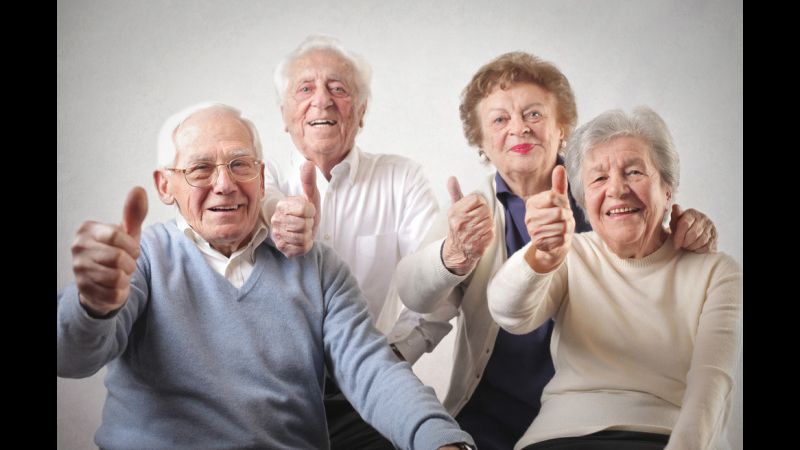Oh, he’s just a grumpy old man and she’s a cranky old woman. We grow up hearing these stereotypes associated with people as they age. A new study at Northwestern University, however, is challenging this stereotype, finding that people may actually become more trusting and happier with age.
Challenging the Stereotype
The study analyzed almost 200,000 people across 83 countries over the course of 30 years. Claudia Hasse, an assistant professor of human development and social policy at Northwestern University, and her team found “that trust increases as people get older and, moreover, that people who trust more are also more likely to experience an increase in happiness over time.” The duration of the study also suggest that their findings are not associated with particular generations. In the United States, the study focused on 1,200 Americans and found similar results.
So what’s the cause for this increase in trust? When someone is transitioning into a stage in their life that might limit their strength and independence, it’s not hard to believe that the person might become more irritable and impatient. Haase, on the other hand, believes that as people age they tend to look on the brighter side of things and are more likely to forgive and see the best in people.
Trust & Happiness
The good news is trust will combat loneliness, which can haunt so many older adults. Maintaining one’s sense of trust enables someone to keep and develop strong relationships. Staying active and social is what many researchers are saying is essential to a healthy life, especially as you age.
However, there can be issues with too much trust in the elderly community. Older adults are more vulnerable to fraud and scammers. A study at UCLA in 2012 found that people over the age of 55 were not as proficient in picking up on untrustworthiness cues in a person when compared to people in their twenties.
When someone transitions into a stage in their life where they are not as independent, it is very possible for someone in that person’s life to take on the responsibility of caregiver. Just as it is recommended for seniors to stay social and active, it is imperative for caregivers to remain conscious of their own health and well-being. When a caregiver takes care of themselves, that person will be less stressed and impatient and will ultimately be a better, happier caregiver.
Getting older is never easy. Accepting the challenges and limitations that come with age can certainly be a challenge for most people. But with studies like these, we can be optimistic about how we will feel as we age.


